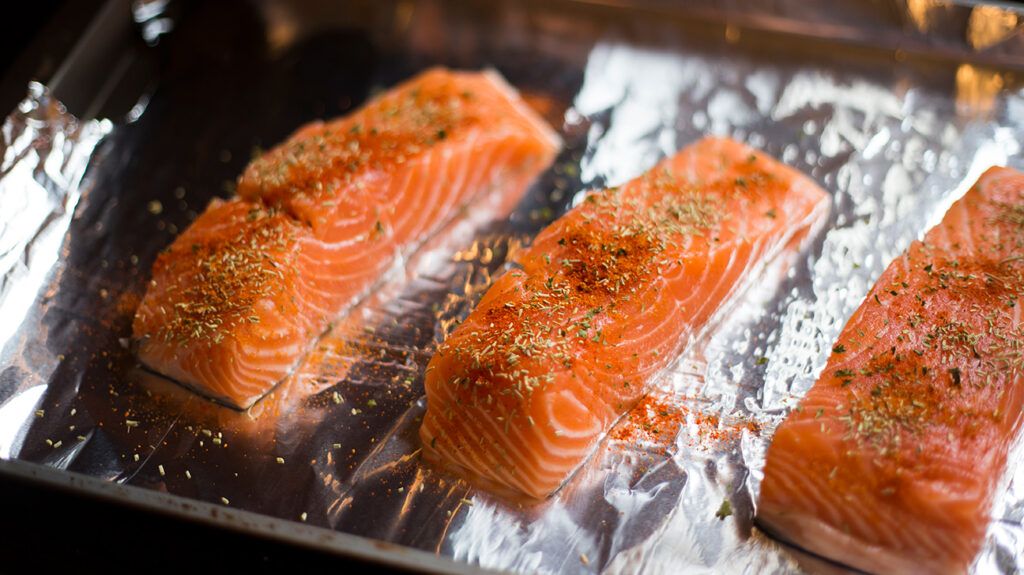Research suggests that various nutritional deficiencies, such as zinc and vitamin B, are present in people with mental health conditions like OCD. Here are foods that can help.
Obsessive-compulsive disorder (OCD) is a mental health condition characterized by recurrent, intrusive, and unwanted thoughts, known as obsessions. OCD is also characterized by repetitive, ritualized behaviors, also known as compulsions.
Some experts believe that the foods we eat can help manage symptoms of OCD.
If you’re looking for natural options to treat your OCD, you may consider giving your diet a second look to ensure you take in the best foods and supplements for you.
According to the National Alliance on Mental Illness, the recommended treatment for OCD includes cognitive behavioral therapy (CBT) and medication.
But certain medicines can cause unpleasant side effects that may lead you to look at other forms of treatment, such as dietary supplements. Below are foods you may consider to help manage your symptoms.
Foods high in vitamin D
A much-needed vitamin, your body takes in vitamin D through some foods, supplements, and even the sunlight. It helps with many bodily functions,
- absorbing calcium in our belly and bones
- bone growth
- preventing osteoporosis
- reducing inflammation
- aiding in cell growth and metabolism
- improving immunity
Foods that serve as sources of the vitamin include:
- fish, like trout and salmon
- beef liver
- eggs
- cheese
- mushrooms
- milk
- soy milk
- oat milk
- cereal
According to a
More clinical trials are needed to see if vitamin D supplementation can improve OCD symptoms. Consider speaking with a medical professional to help you decide if vitamin D best suits your needs.

Oven-baked salmon with vegetables
Ingredients
- 2 slices of salmon
- salt and pepper, to taste
- lemon
- 4 white mushrooms
- 1 medium carrot
- 1 small leek
- 6 prawns
- 1 bunch cilantro
- white wine
- olive oil
Directions
- Preheat the oven to 220°C (approximately 425°F).
- Place each salmon fillet onto a large sheet of aluminum foil big enough to fold over fillets.
- Season salmon with salt, pepper, and juice of the lemon.
- Top with sliced mushrooms, shredded carrots, sliced leeks, prawns, and whole cilantro sprigs.
- Drizzle with white wine and olive oil to taste.
- Fold aluminum foil over salmon to form a sealed packet.
- Bake in preheated oven for about 40 minutes.
- For the baked potatoes, cook unpeeled potatoes in boiling, salted water until knife-tender and drain.
- Smash each firmly, so that skin opens lightly.
- Season with salt and olive oil and bake in preheated oven for about 15 minutes.
Foods high in vitamin B12
While more research is needed, studies suggest a pattern between vitamin B12 deficiencies and OCD. They also recommend that doctors evaluate each person with OCD for a possible deficit, since it can affect brain function.
Your body needs B12 to aid in its central nervous system function (brain and nerves), formation of healthy red blood cells, and creating and maintaining its DNA.
If you’re looking to add more to your diet, here are some
- beef liver
- clams
- tuna
- salmon
- beef
- milk
- yogurt
Foods high in zinc
Zinc is an essential nutrient needed for brain development and aids in digestion, among other things.
People with OCD deal with issues related to their brain’s ability to adapt and change in response to their experiences and environments. But a
Foods that serve as good
- oysters
- beef
- crab
- lobster
- pork
- beans

Simple beef pot roast
Ingredients:
- 1 tbsp. vegetable oil
- 3 1/2 lbs. beef chuck pot roast
- 2 tsp. salt
- 1 tsp. ground black pepper
- 1 cup diced carrots
- 1 cup diced celery
- 1 cup diced onion
- 1/4 cup butter
- 1 tsp. dried rosemary
Directions:
- Preheat the oven to 135°C (approximately 275°F).
- Pour vegetable oil into a large oven-safe pot over medium-high heat. Season the chuck roast with salt and black pepper. Brown meat on both sides in the hot oil, and transfer to a plate.
- Stir carrots, celery, and onion into the pot, and cook and stir until vegetables start to release their juices, about 3 minutes; loosen any brown flavor bits on the bottom of the pot. Add butter, and cook until the onions are translucent, about 5 minutes. Then sprinkle in rosemary, stir the vegetables, and return the roast to the pot. Cover the pot with a lid.
- Roast in the preheated oven until the chuck roast is tender, about 2 1/2 to 3 hours. Season vegetables with additional salt and black pepper, if desired.
Foods high in antioxidants
Antioxidants could be a promising alternative treatment for OCD. Research suggests that oxidative stress contributes to your OCD symptoms.
By taking in antioxidants, you help improve anti-inflammatory and antioxidant activities inside your body, thus leading to better brain health.
According to a
- dark chocolate
- pecans
- blueberries
- strawberries
- artichokes
- raspberries
- kale
- red cabbage

Antioxidant fruit salad
Ingredients:
- 1 mango
- 1 cup of blueberries
- 1 pomegranate
- 2 tsp. lime juice
Directions:
- Cut the mango in half around the stone, and then criss-cross the flesh of the mango halves with a knife into 1/2-inch squares.
- Push the diced mango flesh outwards and then slice off the squares from the skin into a bowl.
- Tumble in the blueberries, then halve the pomegranate and bash out the seeds with a wooden spoon over the mango. Finally, squeeze over the lime juice and serve.
According to a 2017 study, experts believe that inflammation in your brain can play a role in OCD. So, you may find it helpful to avoid foods that cause inflammation and additional stress on your body.
Foods high in sugar
According to a
- candies and desserts
- sugar-sweetened drinks
- baked goods
- foods containing high fructose corn syrup
- honey and syrups
According to the
They suggest that most American women take in no more than six teaspoons of sugar daily, and no more than nine teaspoons for most American men.
In a
Other foods to consider eating in moderation include refined carbohydrates and red processed meats.
Your mental health is an integral part of your overall health and well-being.
Habits such as eating a well-balanced diet, exercising regularly, and getting an adequate amount of sleep can help you cope with your symptoms.
Regular check-ups with your doctor are also crucial to maintaining a good bill of health.
If you currently take medication prescribed by your doctor to manage your OCD symptoms, consider speaking with them to discover how you can incorporate alternative treatments in support of your medicine.
If you plan on discontinuing your medication it can be helpful to discuss this with your doctor to develop a plan that will best support you.
A note on accessibility
In 2016, as many as 40.6 million Americans lived in poverty, many of whom experienced food insecurity. Despite food stamp programs like the Supplemental Nutrition Assistance Program (SNAP), not everyone can always afford to eat healthily.
Many people don’t have access to fresh and nutritious foods because they may live in food deserts or food swamps, where dollar and liquor stores might be the only options for buying foods and drinks.
If some of the healthier food options suggested in this article are inaccessible to you, know that it’s not your fault.
Remember that frozen and canned foods, such as frozen fruits and veggies or canned fish, can be healthy options too.
It’s also important to keep in mind that dietary changes are not the only self-care strategy you can try to boost your serotonin levels. If you want to learn about other things you can do, consider reading this article.
Therapy may also be a viable option, but if you’re unsure of how to afford it, these tips and free resources may get you started.
Dietary changes aren’t enough to treat all symptoms. Consider speaking with a medical professional who can help with a care plan that fits your needs.
Managing your OCD can be challenging, and it requires great determination and courage. However, you can take control of your mental health and live the life you desire. You’re not alone in this journey.
